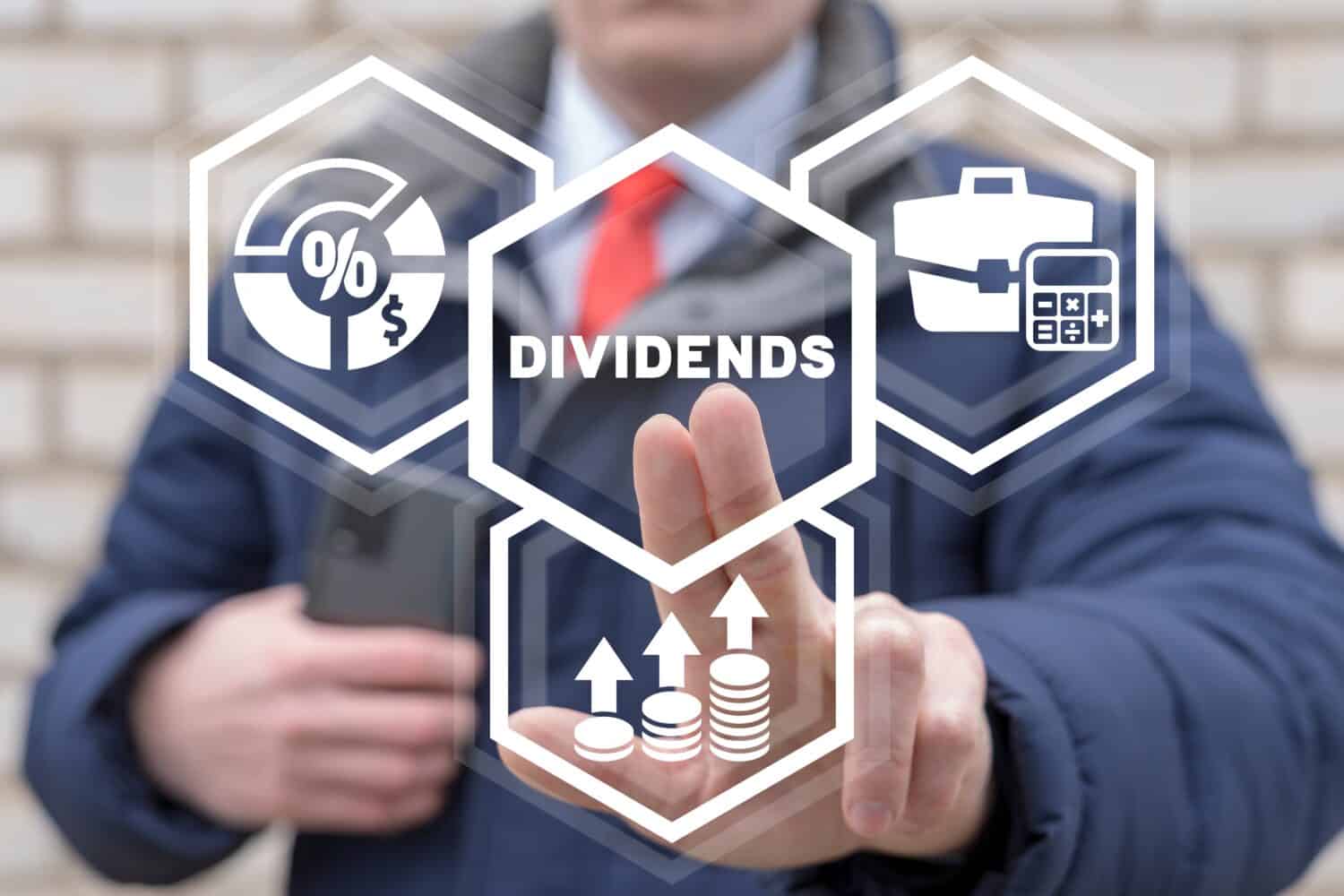
Dividend stocks are an increasingly popular choice for those looking for a steady stream of passive income. Typically, these stocks provide regular payouts alongside any capital appreciation that they may experience.
However, not all dividend stocks are made equal, and you should avoid some of them altogether. Some companies prioritize high dividends to attract investors, but this can be a risky strategy. These “dividend traps” often cannot sustain payouts, leading to unexpected cuts and derailing your investing plans.
There are several pitfalls you should avoid when looking for safe dividend stocks. For instance, you’ll want to avoid:
- High-growth companies: These companies typically focus on reinvesting their revenue back into the business rather than paying out a dividend to investors. While they may offer a dividend, it’s often lower.
- Companies with a history of dividend cuts: If a company once cut a dividend, it may be a sign that their dividend isn’t sustainable. Even if they’re restarted payments, they could stop again in the future.
- Companies in cyclical industries: Companies in industries like oil or gas tend to have more volatile earnings, making their dividend less safe.
- Companies with high debt levels: Companies with more debt tend to have less sustainable dividends.
- Companies with high payout ratios: It may seem counterintuitive, but too high dividends can also be a problem. If a company is paying too much of its profit in dividends, it leaves them little room to invest in growth.
Let’s look at some real-life examples of companies that fall into these categories.
1. Boeing (BA)

Boeing (NYSE: BA) is a giant in the aerospace industry, known for its passenger jets, military aircraft, and defense technology. While Boeing is an established company, it operates within a cyclical industry. Therefore, its growth is closely tied to the overall health of the economy. The cyclical nature can lead to volatility in both earnings and dividends.
Aerospace is a bit of a boom-and-bust cycle. The demand for airplanes fluctuates depending on many factors, like global economics and fuel prices. During economic booms, airlines can experience increases in revenue and profits. This may translate to a higher dividend payout.
However, economic downturns can have a huge effect on airlines, including Boeing. This often means a decline in dividends, too. During the pandemic, many airlines greatly limited or eliminated their dividends.
Boeing also cut its dividend in half during the 2009 crisis, though it continued to pay a dividend when many other companies did not.
2. Freeport-McMoRan (FCX)
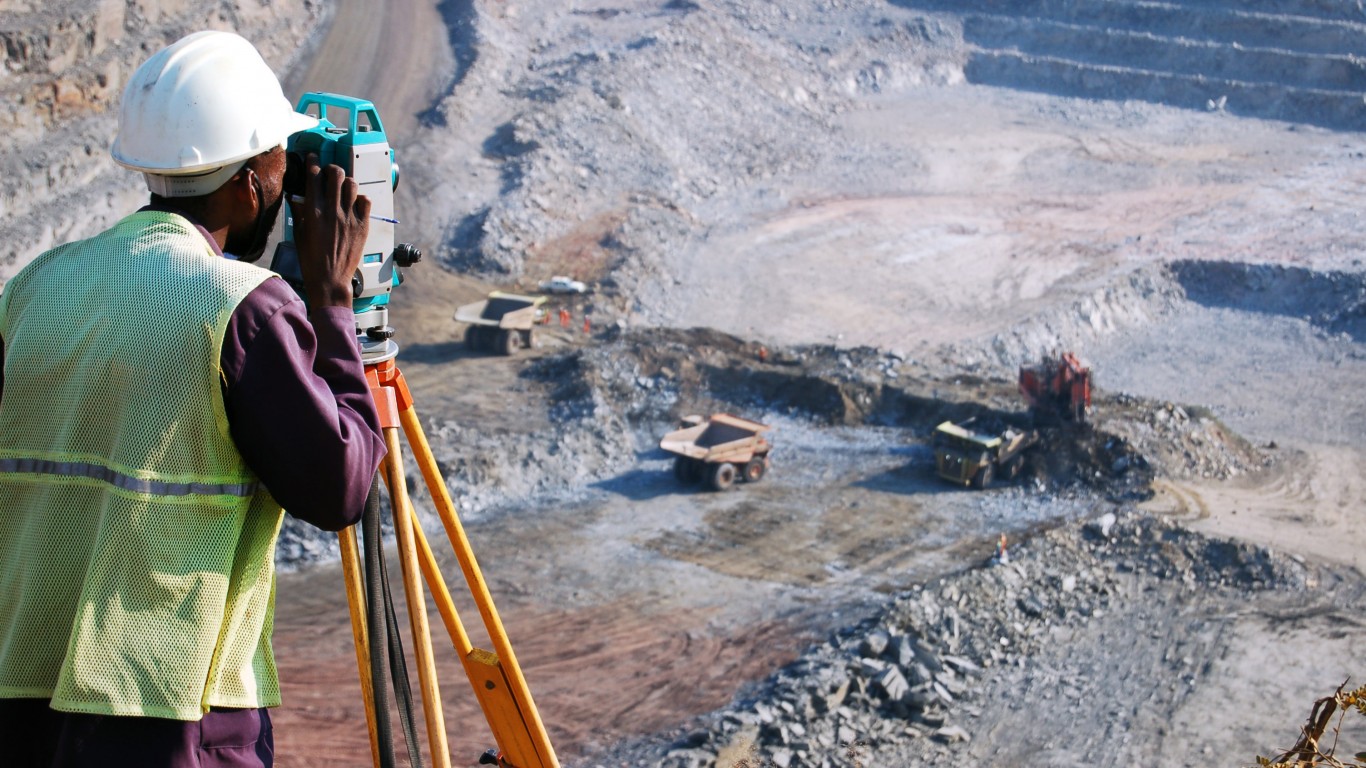
Freeport-McMoRan (NYSE: FCX) is a leading copper mining company that extracts and processes copper ore from mines worldwide. Copper is a necessary metal for many industrial applications. Therefore, it may seem like a stable investment to invest in copper.
However, similarly to Boeing, FCX operates in a cyclical industry. Natural resources as a whole are most needed in times of growth, but the demand can drop in poor economic circumstances.
Like most commodities, the price of copper varies widely. When economic circumstances are on the rise, FCX may pay increased dividends. However, its profits are often negatively impacted by economic shutdowns. Reduced industrial activity leads to lower demand for copper, causing prices to fall.
This decline in revenue can put pressure on FCX’s profitability, potentially impacting its ability to maintain consistent dividend payouts. For instance, they stopped paying dividends completely in the early 2000s, in 2017, and through some of the pandemic.
3. General Motors (GM)
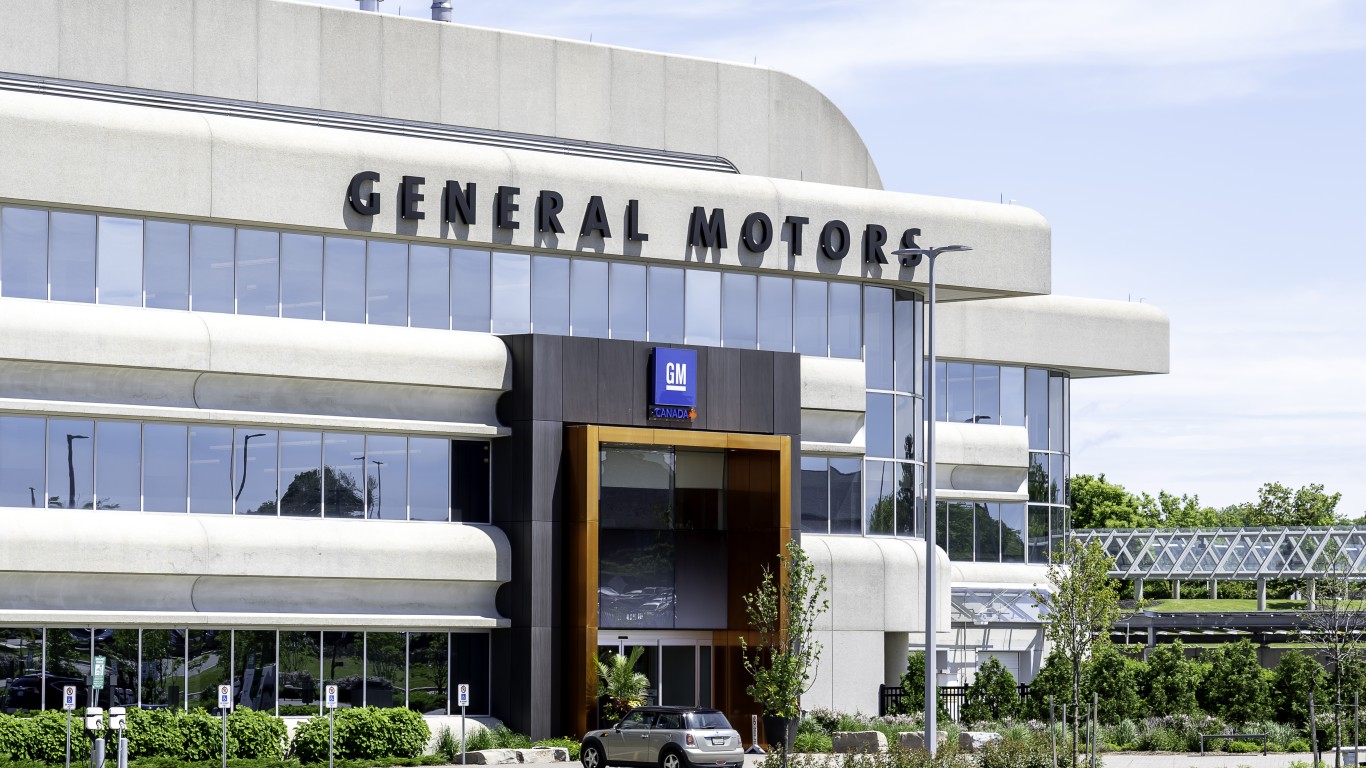
General Motors (NYSE: GM) is a good cautionary tale for dividend investors. It exemplifies the risk associated with chasing high-yield dividend stocks. While GM currently offers a dividend, its history is marked by significant cuts and suspensions.
For instance, GM has halved its dividends several times. They’re often reinstated after a few months to a year, but the dividends don’t always return to their original levels. For instance, the company reinstated its dividend in 2010 after filing for bankruptcy, but at a much lower level than before.
The GM story illustrates the vulnerability of dividend payouts in certain circumstances. Even established companies with a long history of dividends can be forced to cut or suspend them if they encounter financial difficulties.
GM’s debt levels remain a concern, which can pressure its ability to pay consistent dividends. The whole auto industry is also vulnerable to economic downturns, making them very vulnerable to recessions.
4. 3M Company (MMM)
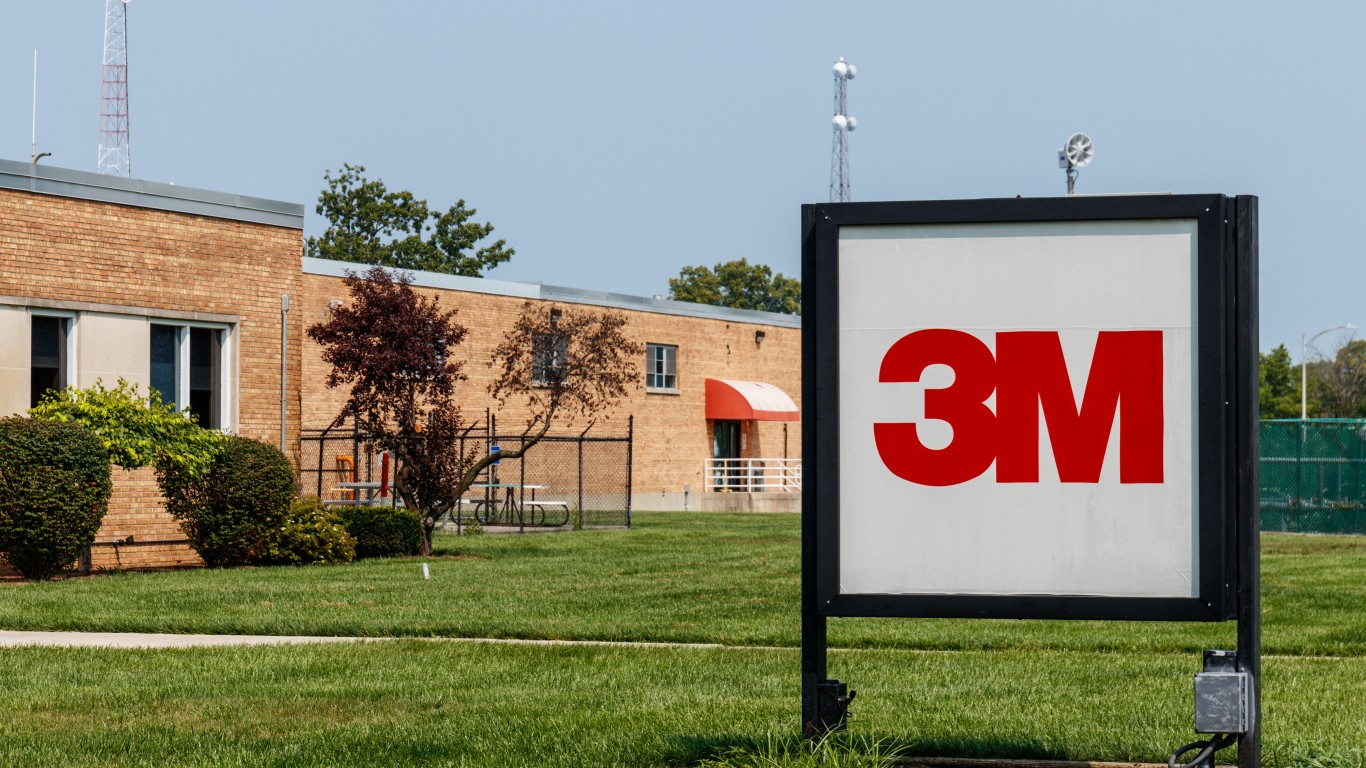
3M Company (NYSE: MMM) is a diversified industrial giant known for a wide range of products like Post-it Notes and Scotch Tape. You might now know the name of the company, but you absolutely have some of their products in their house.
While MMM currently offers a dividend, its recent announcement of a planned dividend “reset” raises questions about its sustainability.
A dividend “reset” results in lower dividends per share for investors. This reset is due to challenges in future years with slower-than-expected sales, which will affect profitability.
The company is also experiencing a “spin-off,” which basically involves splitting it into two. The newly formed company will focus on 3M’s healthcare customers. The healthcare segment is a significant contributor to 3M’s cash flow and will have a smaller cash base after the spin-off.
The reset might be part of MMM’s broader strategy to improve its financial flexibility and invest in future growth initiatives. Currently, though, this decision will result in diminished dividends. We currently took it off our list of “Dividend Kings” for this reason.
5. Royal Caribbean Cruises (RCL)

Royal Caribbean Cruises (NYSE: RCL) is another good example of a company that paid great dividends – until it didn’t. While this company was once very stable, it was forced to cut dividends in 2012. Royal Caribbean was in the middle of a global economic downturn, with few and few people going on cruises.
This led to a significant cut in the company’s income. Before the downturn, the company had also taken on more debt to fund the creation of new fleets. This debt became a serious burden when their income diminished during the economic downturn.
The cruise industry is inherently cyclical. Passenger demand and profitability fluctuate based on economic conditions, fuel prices, and unexpected events like pandemics. Like many other companies on this list, this cyclical nature of the industry leads to poor dividend payments.
It’s important to understand the dangers of investing in cyclical industries solely for the dividends. When the economy changes, these dividends may no longer be paid.
6. Campbell Soup Co. (CPB)
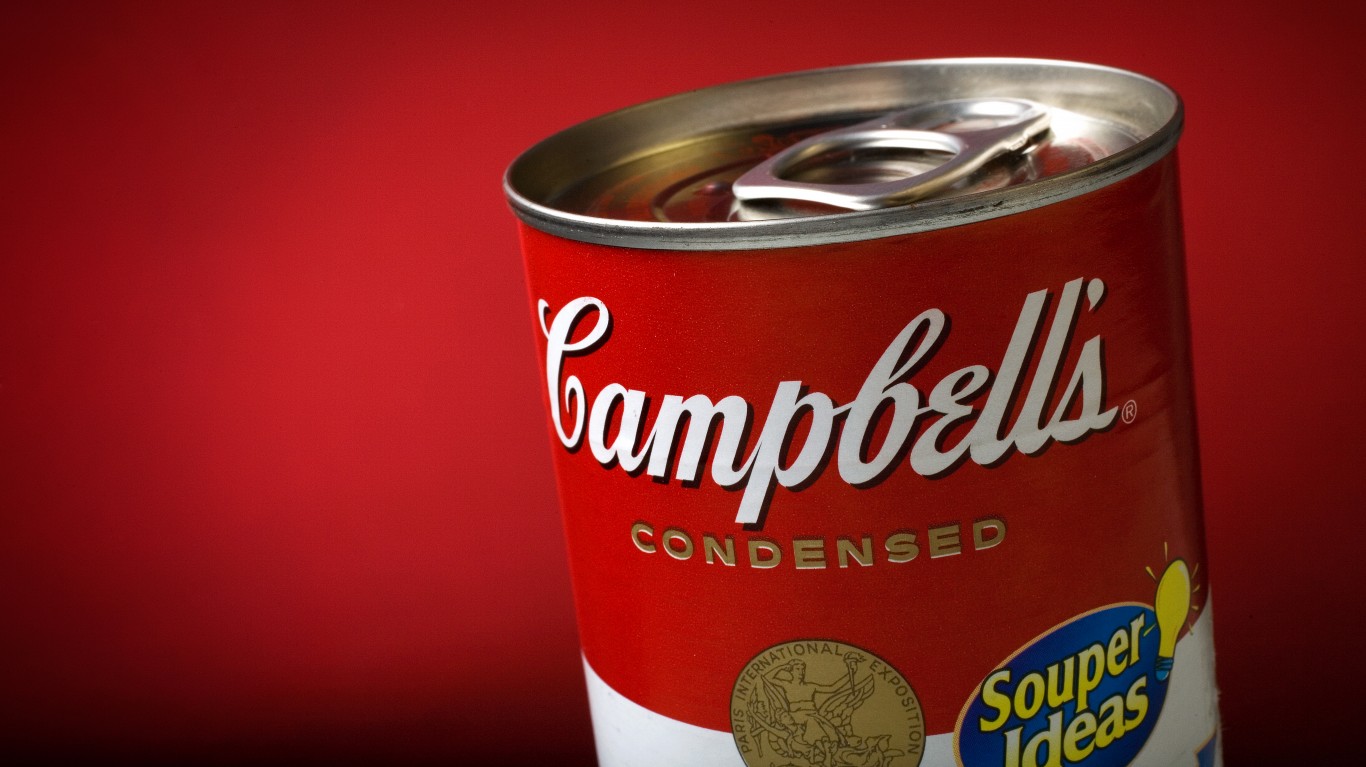
Campbell Soup Co. (NYSE: CPB) is a great case study on why looking at yield alone isn’t recommended. As of this writing, CPB has a very impressive yield. However, this can be a bit misleading. It’s very possible that companies with high yields like this one won’t be able to keep up in the long run.
Campbell Soup has faced challenges in recent years, with stagnant or declining sales in its core soup business. Expectations for organic sales growth are typically flat or even at a slight decline. That is not the kind of growth a company needs to pay out high dividend yields.
You may be disappointed with this stock if you’re looking for consistent dividend growth.
CPB also has a high payout ratio. A payout ratio is the percentage of a company’s earnings that are paid out as dividends. When this is high, it indicates limited room for future dividend increases and limited sustainability. The company doesn’t have much wiggle room!
Currently, CPB’s payout ratio is around 58%, which is a bit higher than the maximum we recommend of 55%.
In an effort to increase profitability, Campbell Soup may implement some cost-cutting measures. While this can improve their short-term earnings, it may come at the expense of long-term growth, which is necessary to keep dividends high.
While trying to maximize Campbell Soup’s dividend yields is tempting, it’s crucial to consider whether these yields are sustainable!
7. Dominion Energy (D)
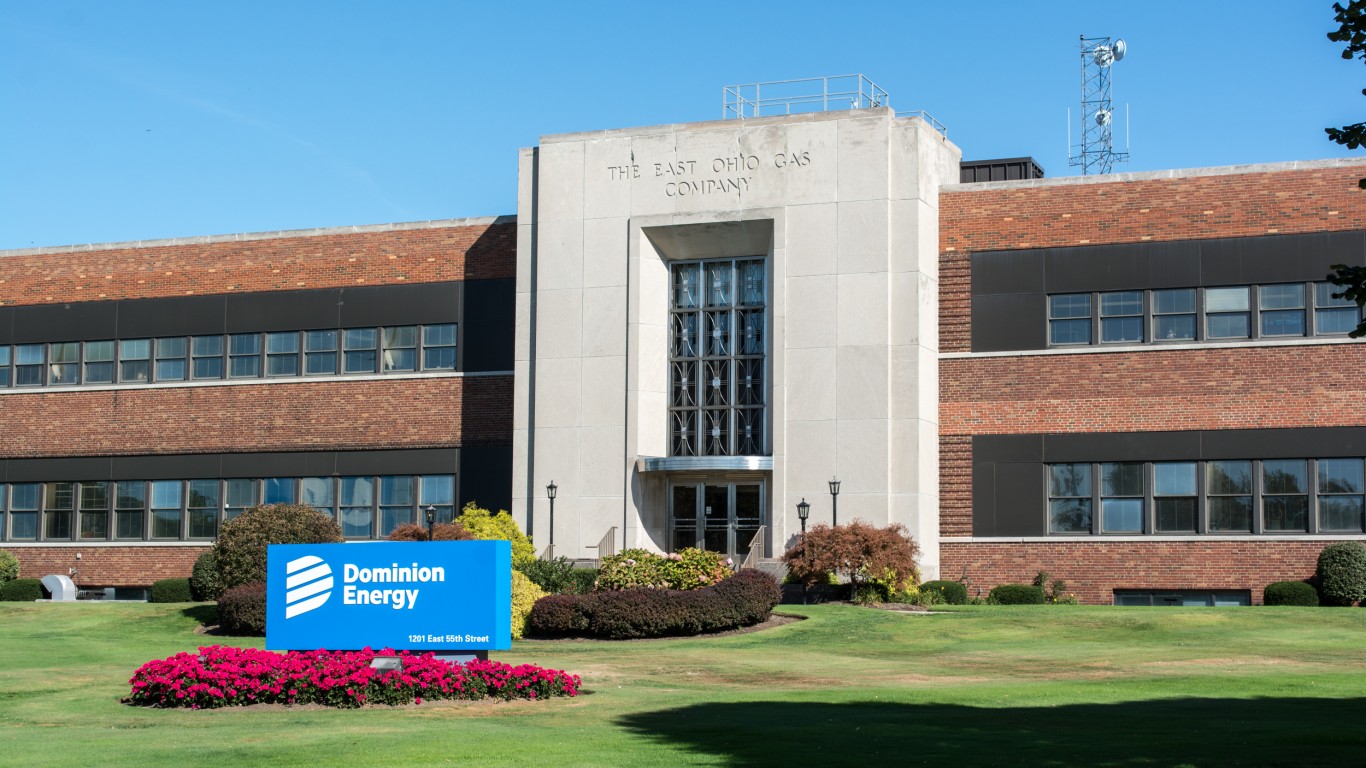
Dominion Energy (NYSE: D) boasts a seemingly attractive dividend yield. Again, chasing this high yield can be risky for dividend investors looking for long-term stability. Dominion Energy currently has an exceedingly high payout dividend of over 100%.
Of course, this immediate income can be tempting, but it raises serious concerns about the dividend’s future. A high payout ratio leaves Dominion Energy with limited retained earnings for reinvestment, potentially limiting its future growth prospects.
Dominion Energy also operates in a very regulated environment. New regulations are impossible to predict and can significantly impact this company’s income. In the future, these new regulations may impact its ability to pay dividends.
8. Macy’s (M)
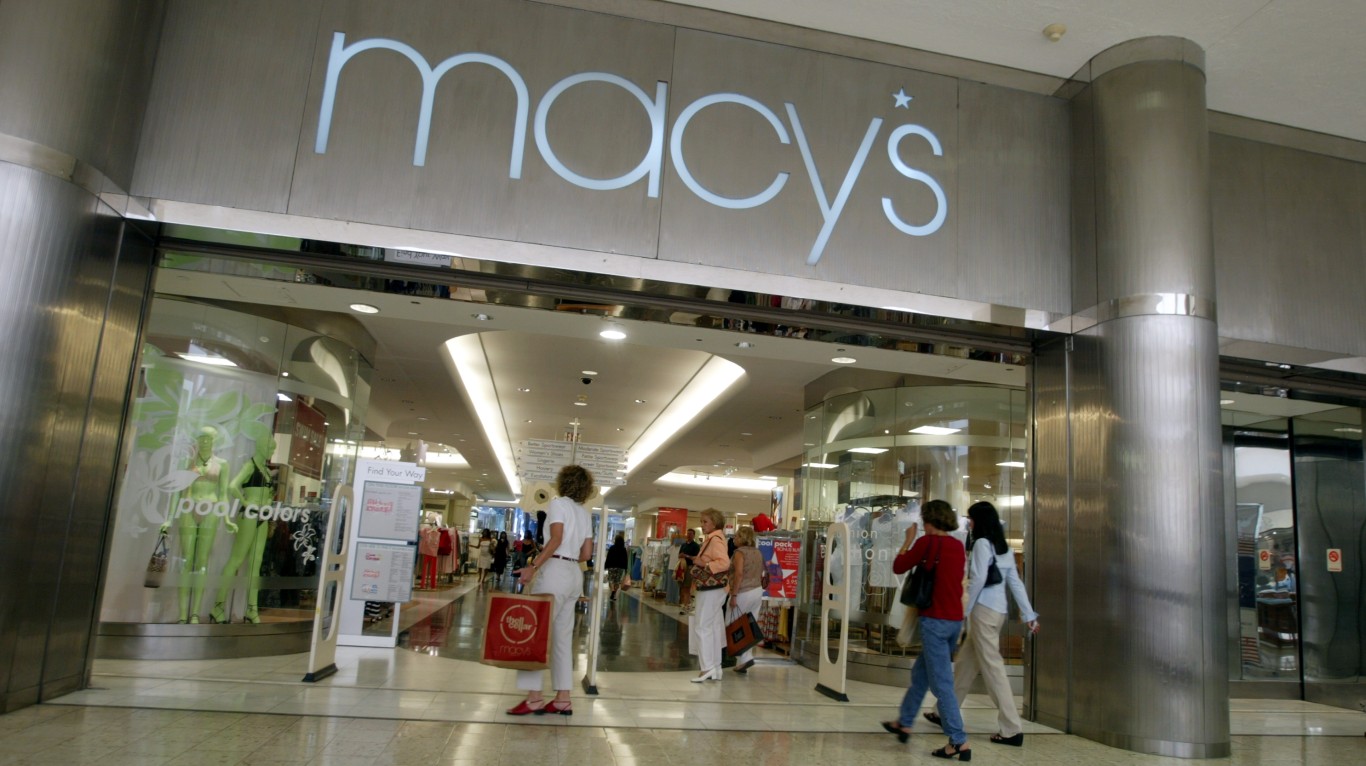
Macy’s (NYSE: M) was once a dominant department store giant with a substantial dividend yield. However, a closer look reveals several risk factors.
For one, department stores just aren’t what they used to be. Many customers have turned to online shopping, an area Macy’s has not kept up in. Macy’s is struggling to adapt to this evolving retail landscape, which is leading to declining sales.
Falling sales have translated into declining profitability for Macy’s, which is putting pressure on its ability to maintain consistent dividend payouts over time. You don’t want to invest in a company for dividends when it is potentially declining. Many high dividends have been canceled over the years, and Macy’s dividend could be next.
Macy’s also has a significant amount of debt. This debt burden is another drain on its income, just like its high dividend is. Therefore, this company will have a limited ability to maneuver financially. They may be forced to reduce their dividend for this reason, especially if another event like Covid-19 hits.
9. Edison International (EIX)
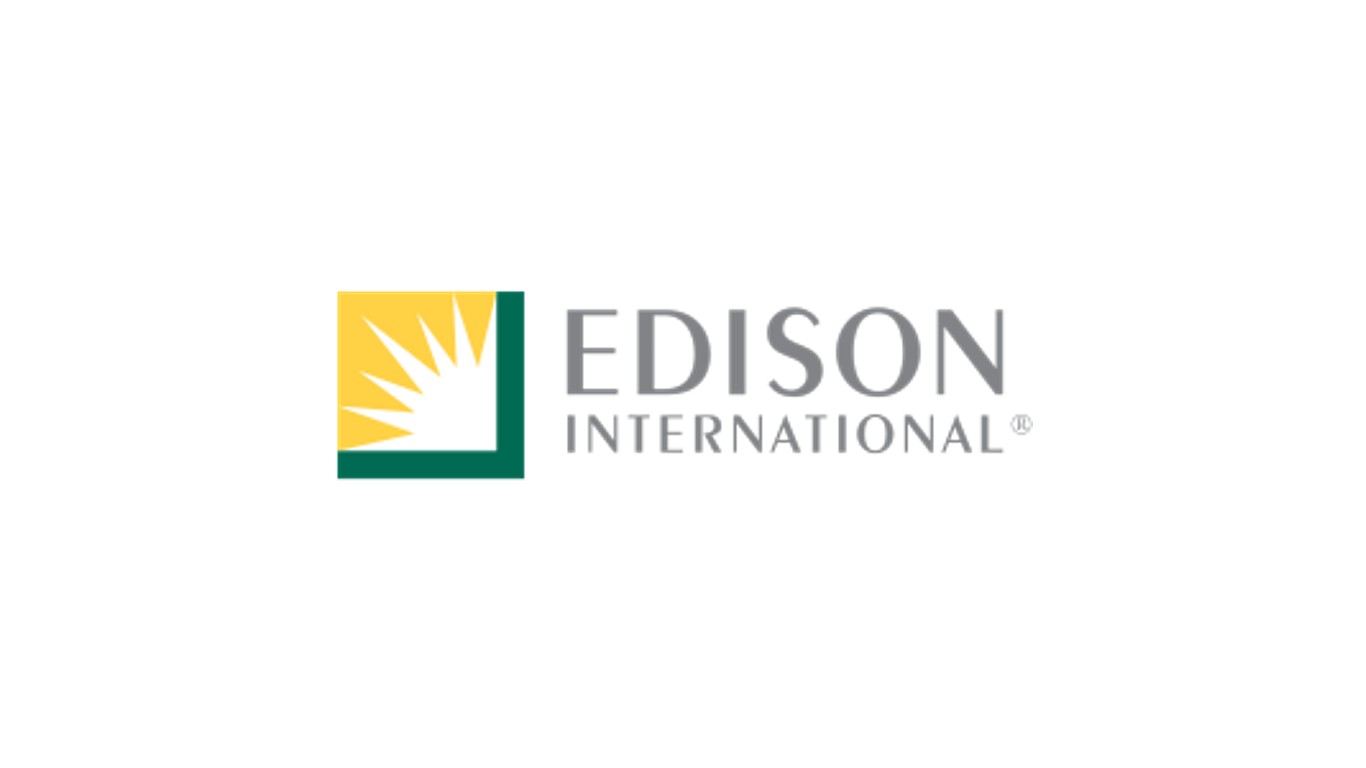
Edison International (NYSE: EIX), a California-based utility holding company, might appear attractive to dividend investors at first glance. It has a long history of dividend payouts and operates in a relatively stable industry. People in California are always going to need electricity, after all!
It’s easy to see it as the perfect company for dividends, but there are a few reasons we don’t recommend it.
Firstly, it has very little room to grow and mature. The electric utility industry moves very slowly. Cash flow will remain steady, but the odds of significant earnings growth are minimal. Generally, you want to choose companies that have a good chance to grow their dividend over time.
EIX is also in a very regulated industry, like most utility companies. These regulations can impact everything from pricing structures to investment decisions. Unexpected changes can squeeze profit margins and force the company to invest elsewhere, potentially cutting dividends.
Another big risk is wildfires. California faces a heightened risk of wildfires, which can damage utility infrastructure, lead to costly repairs, and potentially cause liabilities for EIX.
There were also times when EIX did not pay dividends (from 2001 to 2003), so they have a history of cancellations.
In 20 Years, I Haven’t Seen A Cash Back Card This Good
After two decades of reviewing financial products I haven’t seen anything like this. Credit card companies are at war, handing out free rewards and benefits to win the best customers.
A good cash back card can be worth thousands of dollars a year in free money, not to mention other perks like travel, insurance, and access to fancy lounges.
Our top pick today pays up to 5% cash back, a $200 bonus on top, and $0 annual fee. Click here to apply before they stop offering rewards this generous.
Flywheel Publishing has partnered with CardRatings for our coverage of credit card products. Flywheel Publishing and CardRatings may receive a commission from card issuers.
Thank you for reading! Have some feedback for us?
Contact the 24/7 Wall St. editorial team.





